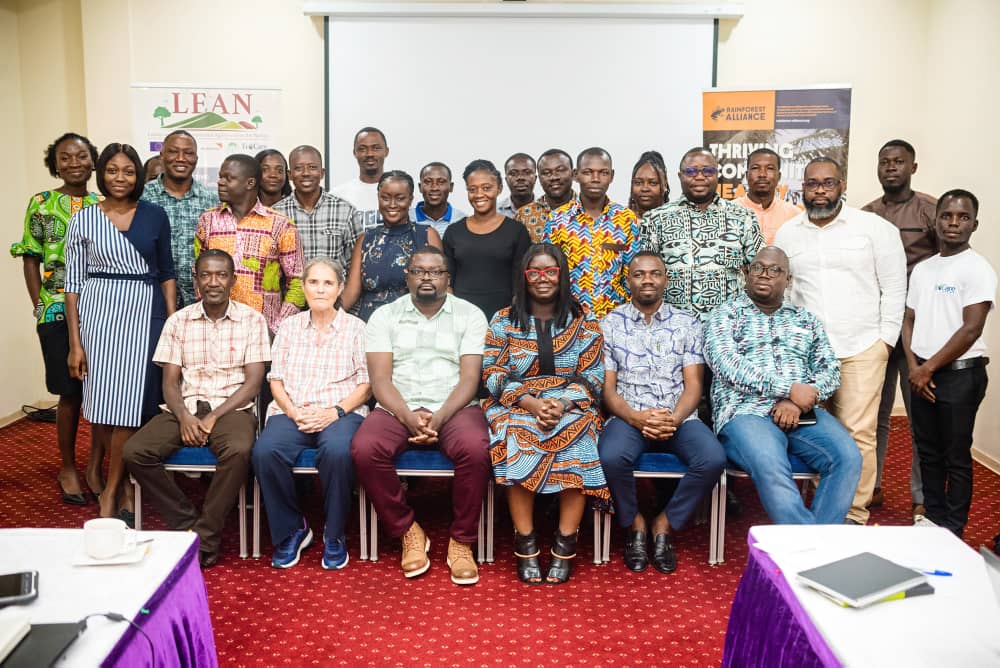By Stanley Senya
Accra, July 17, GNA – The fourth Consortium Capacity Building Workshop and Reflection Meeting for the Landscapes and Environmental Agility across the Nation – LEAN Project has ended in Accra.
The four-day meeting brought all partners under the LEAN Project together to gain knowledge, skills, capacity as well as address all concerns regarding the Project to have a smooth, efficient, and effective project implementation.
The LEAN Project is a four-year project, with funding from the European Union, working to address some major barriers in three priority landscapes in Ghana.
These are High Forest Zone, Transition and Savannah landscapes and it aims to directly support national efforts to conserve biodiversity, improve the livelihoods of small-scale farmers, build climate resilience, and reduce emissions from land-use changes across the various zones.
Madam Abena Dufie Woode, the Consortium Lead with the Lead Implementation Partner, Rainforest Alliance, in a statement issued in Accra identified some implementation challenges that needed to be addressed for effective and efficient project implementation.
“With the next round of interim reports due on November 30, 2023, and update requests from donors, it is expedient to meet as a Consortium to build capacity to address the challenges affecting the EU LEAN Project,” it said.
The Capacity Building Workshop focused on LandScale, Project Monitoring Platform (PMP), outcome of Baseline Survey, Communication and Visibility amongst others.
Mr Daniel Kofi Abu, Project Manager for Tropenbos Ghana, another an implementing partner in the transitional landscape, said he was looking forward to an enhanced collaboration at the community levels as the successful workshop had informed the whole team on how to re-strategize to achieve the overall goals of the project.
According to him, communities have embraced the LEAN Project and the concept of tree planting, ideals of climate change and relationship with government stakeholders have been empowered as they have recently completed processes of signing forest protection agreement with communities amongst many others.

In the transitional landscape, he said currently they have started actions on distribution of some livelihood interventions, and a lot of activities and training across 30 communities in areas like Integrated Landscape Management approaches and how these communities could integrate that into their everyday life.
He expressed the hope that organizations would register every farmer in the landscape with the bio data on trees to integrate them into the overall system that allowed for fair equitable distribution of carbon preps.
Mr Abu, however, added that the challenges that the Project was facing were still not hindering the process.
GNA.